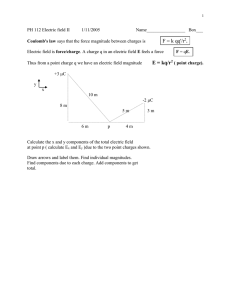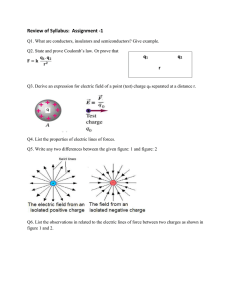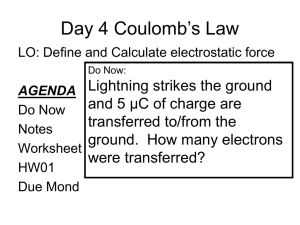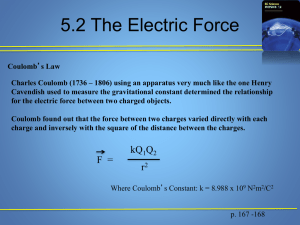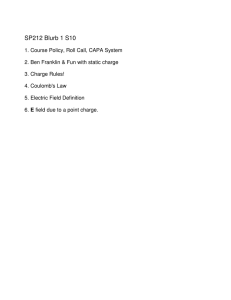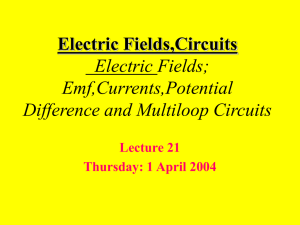Notes: Coulomb`s Law
advertisement
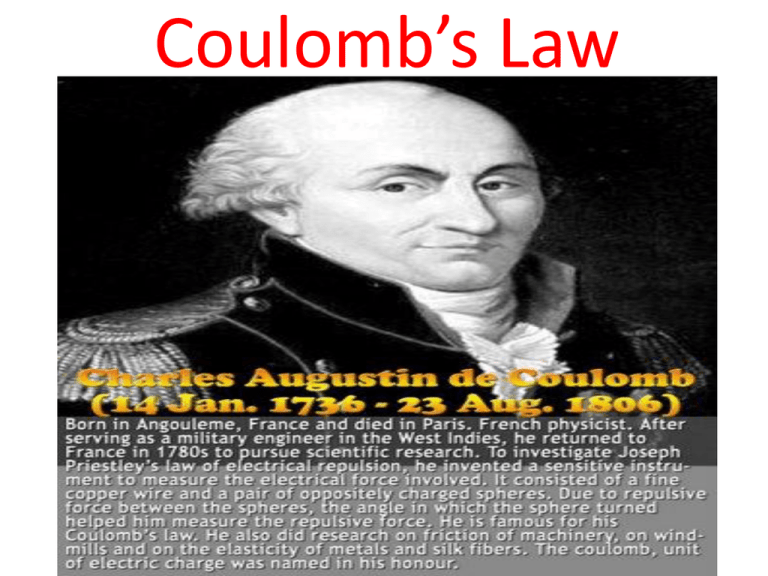
Coulomb’s Law The Apparatus • This device is called a torsion balance or a Coulomb’s Law apparatus. When both spheres are charged the apparatus measures the angle of twist on the suspended sphere. Force can be found from this. • At this time in your academic endeavors, you are probably quite aware that there are two types of electric charges, positive and negative. (Besides credit cards!!!.) • Like charges repel each other and opposites attract. • To further characterize the force F between two point charges q1 and q2 separated by a distance R, Coulomb’s Law states the magnitude of F: • F is the magnitude of the electrical force between the two point charges, • k is Coulomb’s constant, • q1 is the charge of the first point in Coulombs, • q2 is the charge of the second point in Coulombs, • r is the distance between the two point charges in meters. So what is a Coulomb? • A coulomb is a specific quantity of charges. The charge of 1 • electron has been determined to be… • • -1.6x10-19 C = 1 e-, (Coulombs) which we call an elementary charge. A proton is this same value, only positive. So how many charges make up one coulomb of charge? 1 C / (1.6x10-19 C/e-) = 6.25x1018 electrons (or protons) per coulomb. How Strong is Electrical Force? • Electrical Force is a very large - HUGE - force compared to the force of gravity. • If we could scrunch up 10 grams of electrons into a little ball and 10 grams of protons into another little ball and place them about a pinkie width apart, the force between them would be the same as the gravitational force between the Earth and the moon. • http://faraday.physics.utoronto.ca/GeneralInterest/Harrison/Flash/EM/Co ulomb/Coulomb.html Compare Coulomb’s Law to Newton’s Universal Law of Gravitation! • Note that this equation looks like Coulomb’s Law Equation! • Substitute in Mass for charge and a wimpy, weak gravitational constant G, and you can 11 2 2 G = 6.67 x 10 Nm /kg solve for the gravitational force between two objects! What? Why? Try…. • What does it mean to have a negative force in Coulomb’s Law? …Positive force? • Why is the force in Newton’s Gravitational Law mathematically always positive? • Try out the questions on the next slide and write down the answers on your note paper.
